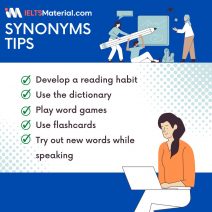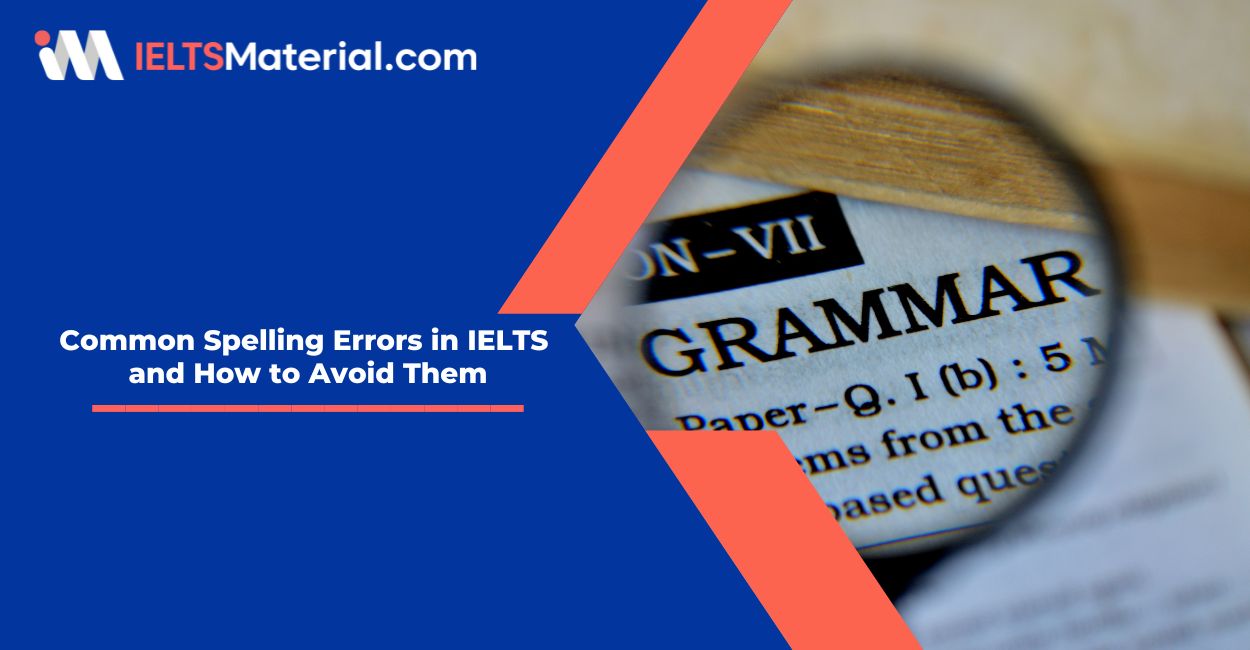Common Spelling Errors in IELTS and How to Avoid Them
4 min read
Updated On
-
Copy link
Table of Contents

Limited-Time Offer : Access a FREE 10-Day IELTS Study Plan!
Introduction
Often students make errors in writing certain words since they are unsure of their spelling. Spelling mistakes can lead to low band scores in the IELTS exam. There are some common spelling errors which get repeated most often in IELTS, causing students to lose precious score points.
Some students have a lot of trouble with spelling and can’t seem to get rid of them. For example, missing the alphabet letters’ a’, ‘e’, and ‘i’ in sentences or writing single letters in words where double letters are to be written, and vice versa, are common mistakes made by students.
Let’s look at some of the most common spelling mistakes students make so that you can learn from them and stop making them yourself:
1. Confusion between single/double letters
Students frequently get perplexed by such words because they think of a double letter in place of a single and vice versa.
| Example:
Incorrect: Mispell Correct: Misspell Incorrect: Neccessary Correct: Necessary |
2. Incorrect positioning of ‘e’ and ‘i’ in words
There are some students who combine the letters ‘e’ and ‘i’ incorrectly. As in some words, where ‘i’ should come first followed by ‘e’ and in other words where ‘e’ should come first are incorrectly interchanged with each other.
| Example:
Incorrect: Neice Correct: Niece Incorrect: Thier Correct: Their |
3. Silent letters
Silent letters are letters that you can’t hear when you say the word, but they are there when you write the word. Due to this reason, many students spell it incorrectly in the answers.
| Example:
Bridge Incorrectly written as ‘brige’ because while speaking, ‘d’ becomes silent. Align Incorrectly written as ‘alin’ because while speaking, ‘g’ becomes silent. Anchor Incorrectly written as ‘ancor’ because while speaking, ‘h’ becomes silent. |
4. Homophones
Words that sound the same but are spelled differently and have distinct meanings are known as homophones. Hence, some students make mistakes while writing such words.
| Example:
New: This is a new dress. Knew: I already knew about this! Plain: I would like to have plain rice. Plane: Sam boarded the plane a few minutes ago. Cereal: I would like to have cereal for breakfast. Serial: A new serial is starting tonight on television. |

5. Commonly Confused Suffix – ‘ar’ and ‘er’
There are words that end with an ‘ar’ word, while others use ‘er’ at the end. Hence, it is quite common that students get confused about these words and spell them incorrectly.
| Example:
Incorrect: Gathar Correct: Gather Incorrect: Calender Correct: Calendar |
6. Writing what you hear
Since words sound different when spoken than when written, students often make mistakes while writing such words.
| Example:
Incorrect: tommorrow Correct: tomorrow Incorrect: Wensday Correct: Wednesday |
Other Common Spelling mistakes
|
How to avoid making spelling mistakes
- Read as much as you can, be it journals, articles or stories.
- You won’t be able to correct an erroneous spelling until you have learnt how to write it correctly. So, repeatedly, practise writing the words where you make mistakes to ensure that you really understand them.
- Look for interesting exercises online, which can help you remember the words in a fun environment.
- While writing the words, try to recall the spelling of the words by diving into their pronunciation and then try to prevent repeating the same error.
You can also learn expert Tips & Tricks for cracking IELTS.
Spellings and construction are fundamentally important to gauge one’s expertise in a language and IELTS as well evaluate you for that. Register yourself in our IELTS online classes and have efficient preparation.
Explore IELTS related articles

Start Preparing for IELTS: Get Your 10-Day Study Plan Today!
Recent Articles

Nehasri Ravishenbagam

Nehasri Ravishenbagam

Haniya Yashfeen





Post your Comments
2 Comments